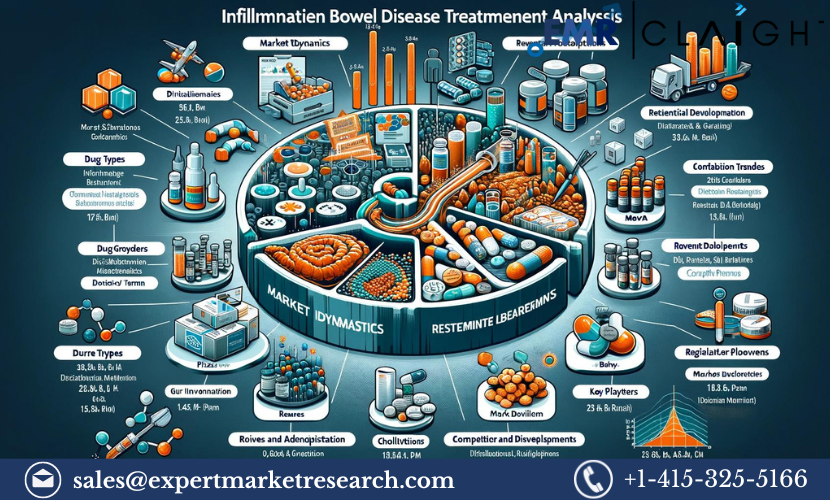Symptoms of Foodborne Illness that need attention
Foodborne illnesses, commonly known as food poisoning, can cause a range of symptoms that vary from mild discomfort to severe health complications. If you’re experiencing symptoms like nausea, vomiting, or abdominal pain, consulting the best gastroenterologist in Bangalore can help you determine the cause and receive appropriate treatment. While some cases of foodborne illness resolve on their own, others may require medical intervention. Understanding the symptoms that need immediate attention is crucial to prevent severe health issues and ensure prompt recovery.
Common Causes of Foodborne Illness
Foodborne illnesses are typically caused by consuming contaminated food or beverages. The contamination can result from bacteria (like Salmonella, E. coli, and Listeria), viruses (such as Norovirus and Hepatitis A), parasites, or toxins produced by these microorganisms. Factors contributing to contamination include improper food handling, undercooking, cross-contamination, and inadequate storage.
Symptoms of Foodborne Illness
Foodborne illness symptoms can vary depending on the causative agent, the amount of contaminated food consumed, and the individual’s overall health. Here are the common symptoms:
- Nausea and Vomiting: Feeling nauseous and vomiting are some of the most common symptoms of foodborne illness. These symptoms usually begin a few hours to a few days after consuming contaminated food. While mild nausea and vomiting can resolve on their own, persistent or severe episodes may require medical evaluation.
- Diarrhea: Diarrhea is another prevalent symptom and can range from mild to severe, watery stools. In some cases, diarrhea may contain blood or mucus, which indicates a more severe infection. Prolonged diarrhea can lead to dehydration, making it crucial to seek medical attention if symptoms persist for more than two days.
- Abdominal Pain and Cramps: Abdominal discomfort, cramping, or pain often accompany other symptoms of foodborne illness. The pain can be localized or generalized and may worsen with certain movements or activities. Severe or persistent abdominal pain, especially when combined with other symptoms, should not be ignored.
- Fever: A low-grade fever may occur as the body fights off the infection. However, a high fever (above 101.5°F or 38.6°C) can indicate a more serious infection that requires prompt medical evaluation.
- Dehydration: Dehydration is a common complication of foodborne illnesses, particularly when symptoms like vomiting and diarrhea are severe and prolonged. Signs of dehydration include dry mouth, extreme thirst, reduced urine output, dark urine, dizziness, and rapid heartbeat. Severe dehydration can be life-threatening and requires immediate medical intervention.
- Fatigue and Weakness: Feeling excessively tired, weak, or fatigued can be a sign of a more severe foodborne illness. These symptoms can result from the body’s immune response to the infection or from the effects of dehydration and nutrient loss.
- Headache and Muscle Pain: Headaches and muscle aches are less common but can accompany other symptoms of foodborne illness, particularly in viral infections like Norovirus. Persistent or severe headaches should be assessed by a healthcare provider.
Symptoms That Require Immediate Medical Attention
While many cases of foodborne illness resolve without treatment, certain symptoms require prompt medical attention to prevent complications:
1. Severe Dehydration
If you or someone you know is showing signs of severe dehydration, such as dry mouth, extreme thirst, decreased urination, dark-colored urine, rapid heart rate, sunken eyes, or confusion, seek medical help immediately. Dehydration can escalate quickly, especially in vulnerable populations like infants, the elderly, and those with weakened immune systems.
2. High Fever
A fever above 101.5°F (38.6°C) that persists for more than 48 hours, or a fever accompanied by chills and sweating, could indicate a serious infection that needs medical evaluation. A high fever can be a sign of a systemic infection, which may require antibiotic treatment.
3. Blood in Stool or Vomit
The presence of blood in stools (bloody diarrhea) or vomit is a red flag that requires immediate attention from a gastroenterologist in Bangalore. Bloody diarrhea can indicate a severe bacterial infection like E. coli or a parasitic infection, while blood in vomit may point to gastrointestinal bleeding.
4. Severe Abdominal Pain
Intense, persistent abdominal pain that does not improve with rest, or is accompanied by bloating, swelling, or tenderness, should not be ignored. Severe abdominal pain could be a sign of a more serious condition, such as appendicitis or pancreatitis, which may require emergency surgery.
5. Neurological Symptoms
Certain foodborne illnesses, such as botulism or Listeria infection, can affect the nervous system. Symptoms like blurred vision, difficulty swallowing, slurred speech, muscle weakness, or tingling sensations should be treated as medical emergencies. Immediate medical intervention is necessary to prevent further complications.
6. Prolonged Symptoms
If symptoms of foodborne illness persist for more than a few days without improvement, or if they worsen over time, it is essential to seek medical advice. Persistent symptoms may indicate a need for specific treatments, such as antibiotics or hospitalization.
When to Visit a Gastroenterologist in Bangalore
If you experience any of the above symptoms or if you are concerned about your health after consuming potentially contaminated food, it is crucial to consult a gastroenterologist in Bangalore. Gastroenterologists are specialists in digestive health and can provide a thorough evaluation, diagnosis, and treatment plan tailored to your needs.
How a Gastroenterologist Can Help
A gastroenterologist will assess your symptoms, medical history, and any recent exposures to identify the likely cause of your illness. They may recommend diagnostic tests such as:
- Stool Tests: To identify the specific bacteria, virus, or parasite causing the infection.
- Blood Tests: To check for signs of infection, dehydration, or other complications.
- Endoscopy or Colonoscopy: In cases where there is severe or unexplained GI bleeding, an endoscopic procedure may be performed to identify the source of bleeding and provide treatment.
Treatment Options
Treatment for foodborne illness depends on the severity of symptoms and the specific cause. Common treatments include:
- Hydration: Replenishing lost fluids and electrolytes is essential, especially in cases of severe vomiting or diarrhea. Oral rehydration solutions (ORS) may be recommended, or in severe cases, intravenous fluids may be required.
- Medications: Depending on the cause, antibiotics, antivirals, or antiparasitic medications may be prescribed. Antiemetics and antidiarrheals can help manage symptoms like nausea and diarrhea.
- Dietary Modifications: Consuming bland foods, such as bananas, rice, applesauce, and toast (BRAT diet), can help soothe the digestive system. Avoiding dairy, caffeine, alcohol, and fatty or spicy foods is also advisable during recovery.
Preventing Foodborne Illness
To reduce the risk of foodborne illness:
- Practice Good Hygiene: Wash your hands thoroughly with soap and water before handling food.
- Cook Food Properly: Ensure meats are cooked to the appropriate temperature to kill harmful bacteria.
- Avoid Cross-Contamination: Use separate cutting boards for raw meats and vegetables, and clean all surfaces and utensils properly.
- Store Food Safely: Keep perishable foods refrigerated and avoid leaving food out at room temperature for extended periods.
Conclusion
Foodborne illnesses can range from mild to life-threatening, depending on the cause and the individual’s overall health. Recognizing the symptoms that require medical attention and consulting a gastroenterologist in Bangalore can help ensure timely intervention and effective treatment. By understanding the risks and taking preventive measures, you can protect yourself and your loved ones from the dangers of foodborne illnesses.









